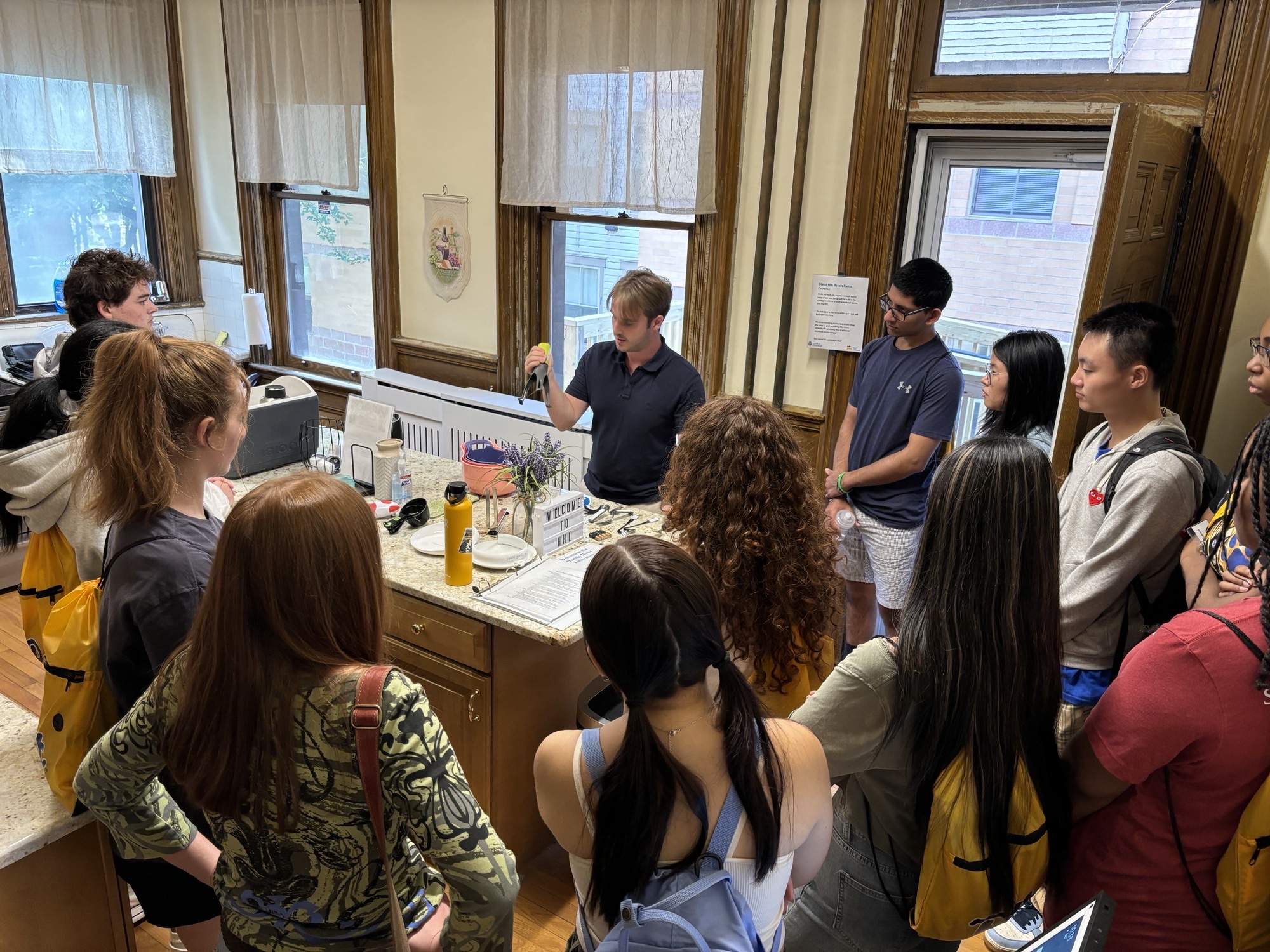Education
Education
Education
In an effort to build an understanding of how the home affects health for students at the University of Pittsburgh, we use the HHL’s simulated living spaces as immersive education environments. In the HHL, we have a simulated living room, dining room, and second floor bathroom and bedroom. The HHL also features conference and office space for courses. The HHL supports and provides faculty guidance on independent student projects, which affords students opportunities to share their specialized knowledge across disciplines for the many educational tours, events, and Open Houses that the HHL hosts.
Included in our growing list of Pitt Academic Programs that use the HHL for educational events are Emergency Medicine (EM) students, Adult Outpatient Medicine Clerkship (AOMC) students through the Pitt Vaccination Hub, Occupational Therapy (OT) students, Audiology (Aud) students, and various disciplines of Engineering students. More information on how the HHL, both as a lab and team, has supported all of these different academic programs is provided below.
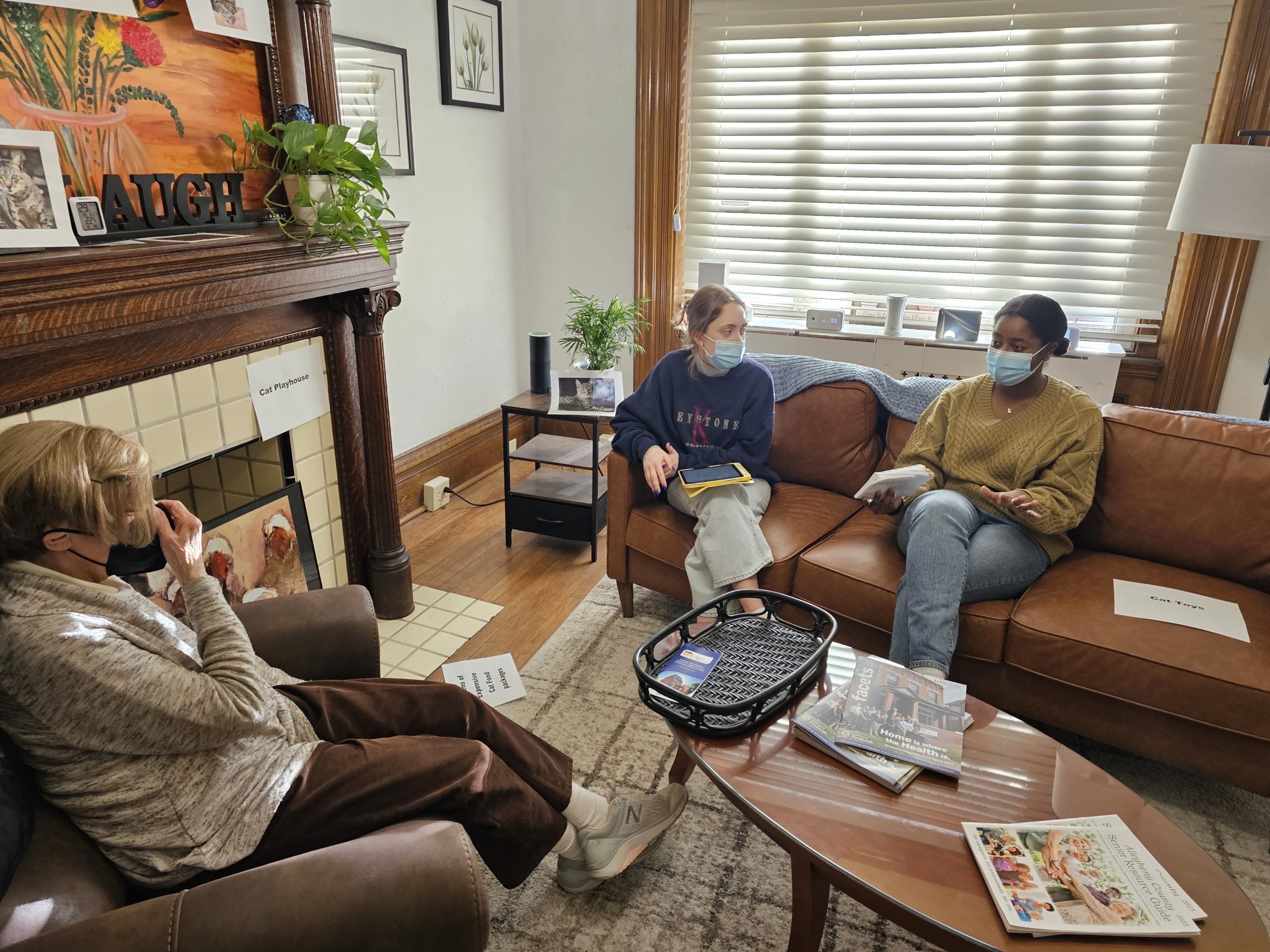
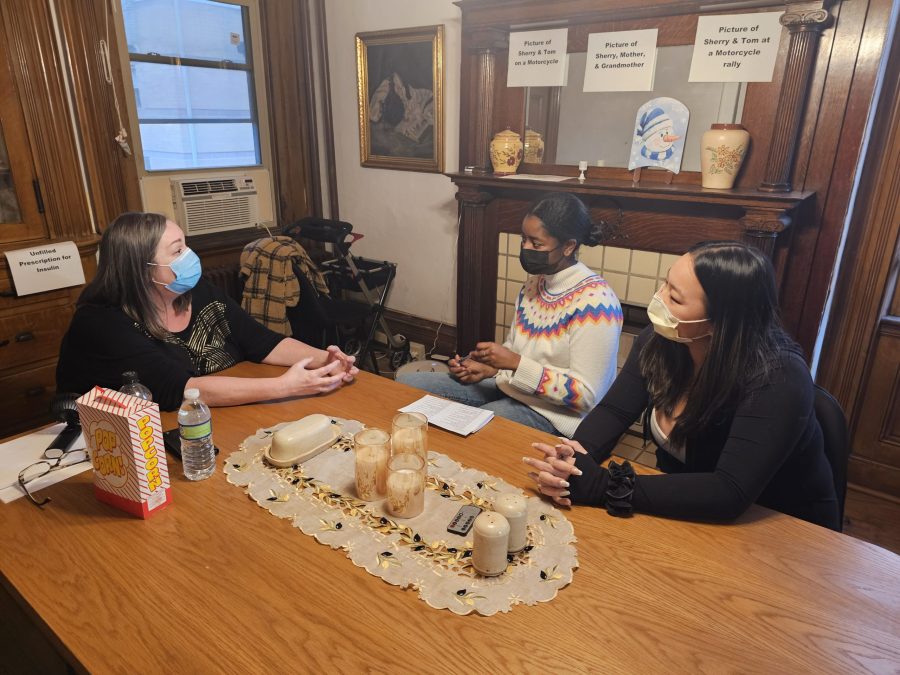
Emergency Medicine
Pitt Emergency Medicine students utilize our simulated living spaces to practice motivational interviewing and observation skills for when they will go into homes as future community paramedics. This course is led by Prof. Christopher Matek. Standardized patient actors from Pitt’s School of Medicine are utilized and props are placed throughout the simulated space to further immerse the students.
Adult Outpatient Medicine Clerkship (AOMC) Students
Through the Pitt Vaccination Hub, medical students in their Adult Outpatient Medicine Clerkship rotation use the HHL house to learn through case studies, props, and immersive activities to highlight the complex interactions between home, health, and medical care. This is to provide future clinicians insight into how disconnects can arise between treatment recommendations in the hospital and the actual outcomes of the care in the home—ranging from issues with medication management to home accessibility challenges to abandonment of assistive technology and beyond.
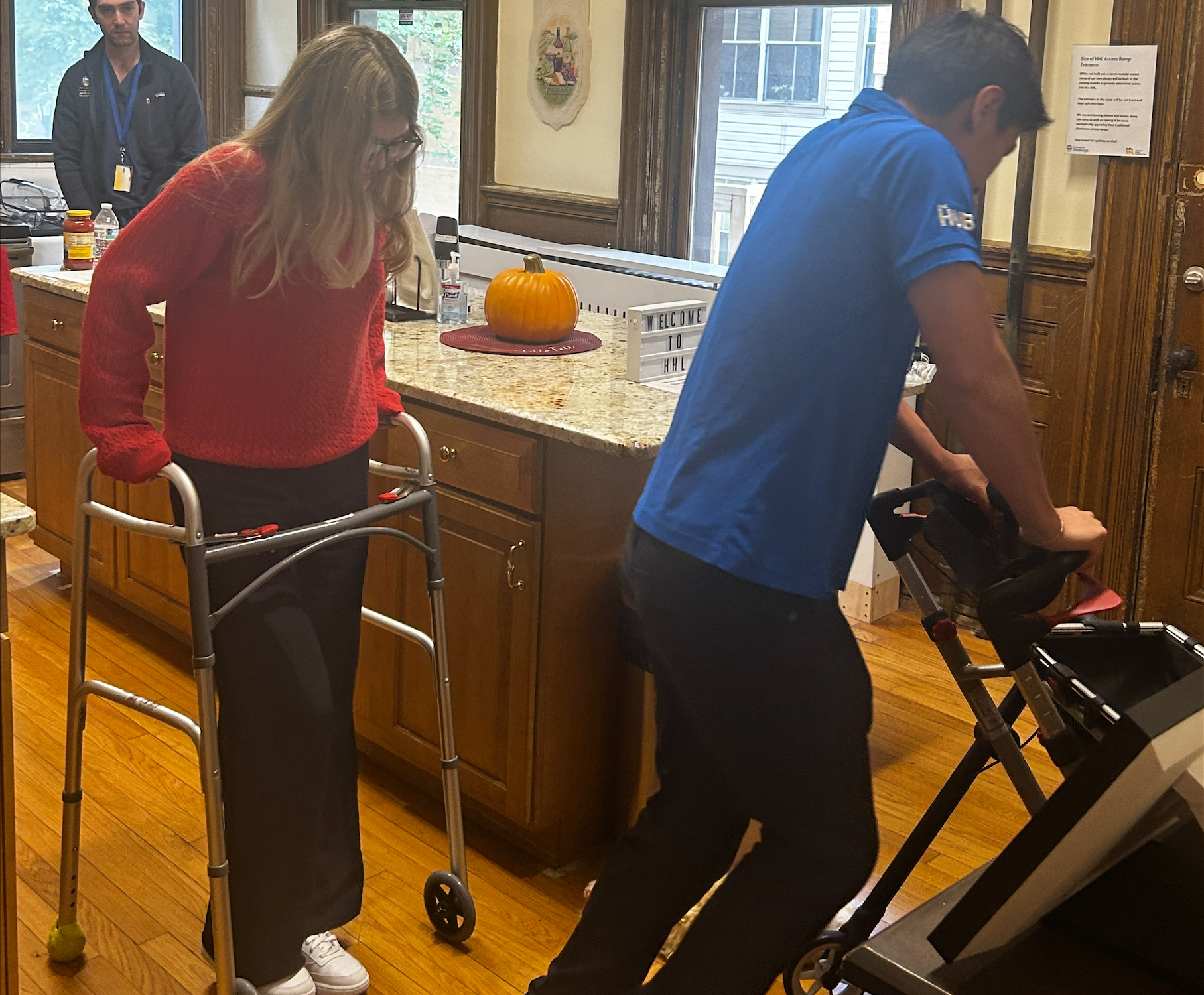
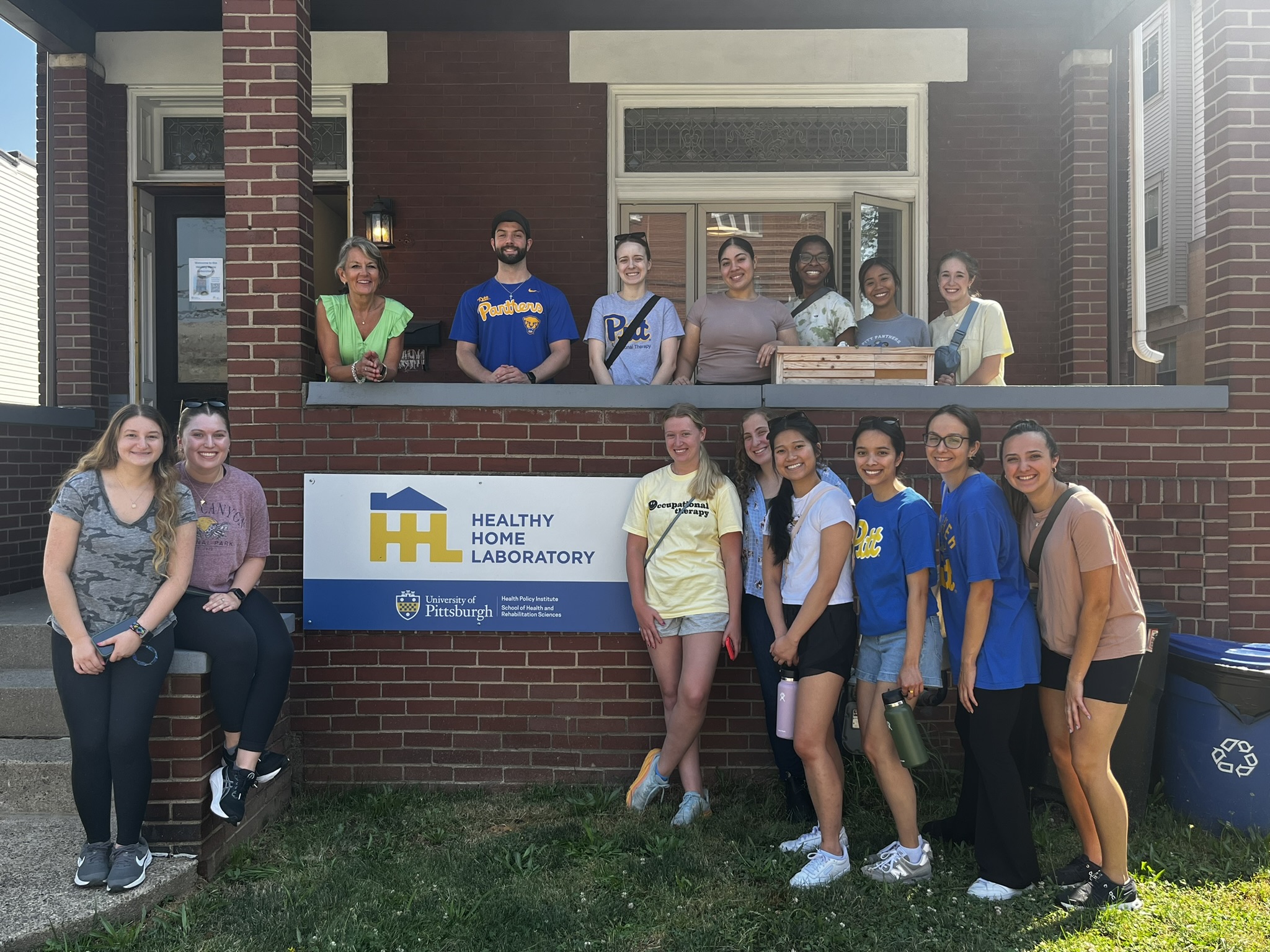
Occupational Therapy
The lab space is used for the education of Doctor of Occupational Therapy (OTD) students, ranging from first year to final year. By working through case studies of simulated older adult clients, these OTD students must determine for themselves how the simulated home environment can help or inhibit their simulated client in completing essential activities of daily living while also considering how their clinical decisions impact their simulated client’s personal and health goals.
Our OTD students in the final year of their program have opportunities to complete individual semester long capstone projects with the HHL. These projects involve applying their knowledge to help advance HHL’s educational initiatives. Some examples include designing and planning a literature-informed sensory-friendly garden to identifying and determining use cases for a catalogue of accessible kitchen equipment.
Audiology
The HHL space has been helfpful for Audiology students to recognize hearing-related challenges in the home and to generate understanding of assistive technology related to alerting, safety, and communication (primarily for those who are Deaf or hard of hearing) and how they can be implemented into the home environment. This was achieved by students observing the simulated living spaces and brainstorming as teams to identify useful solutions. This course is taught by Dr. Elaine Mormer, Director of Audiology Clinical Education in the Pitt Communication Science and Disorders (CSD) Department.
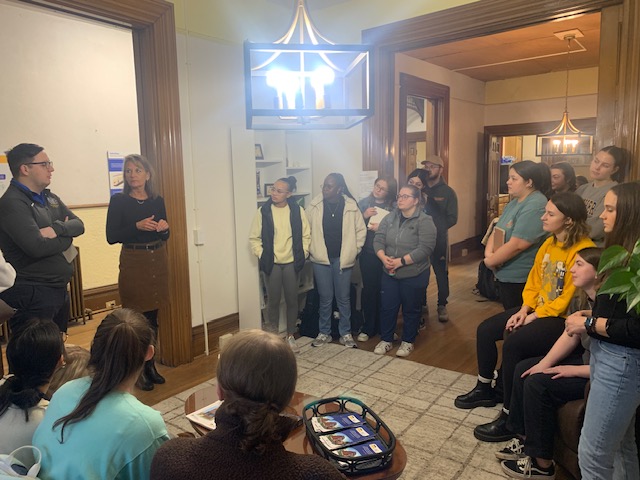
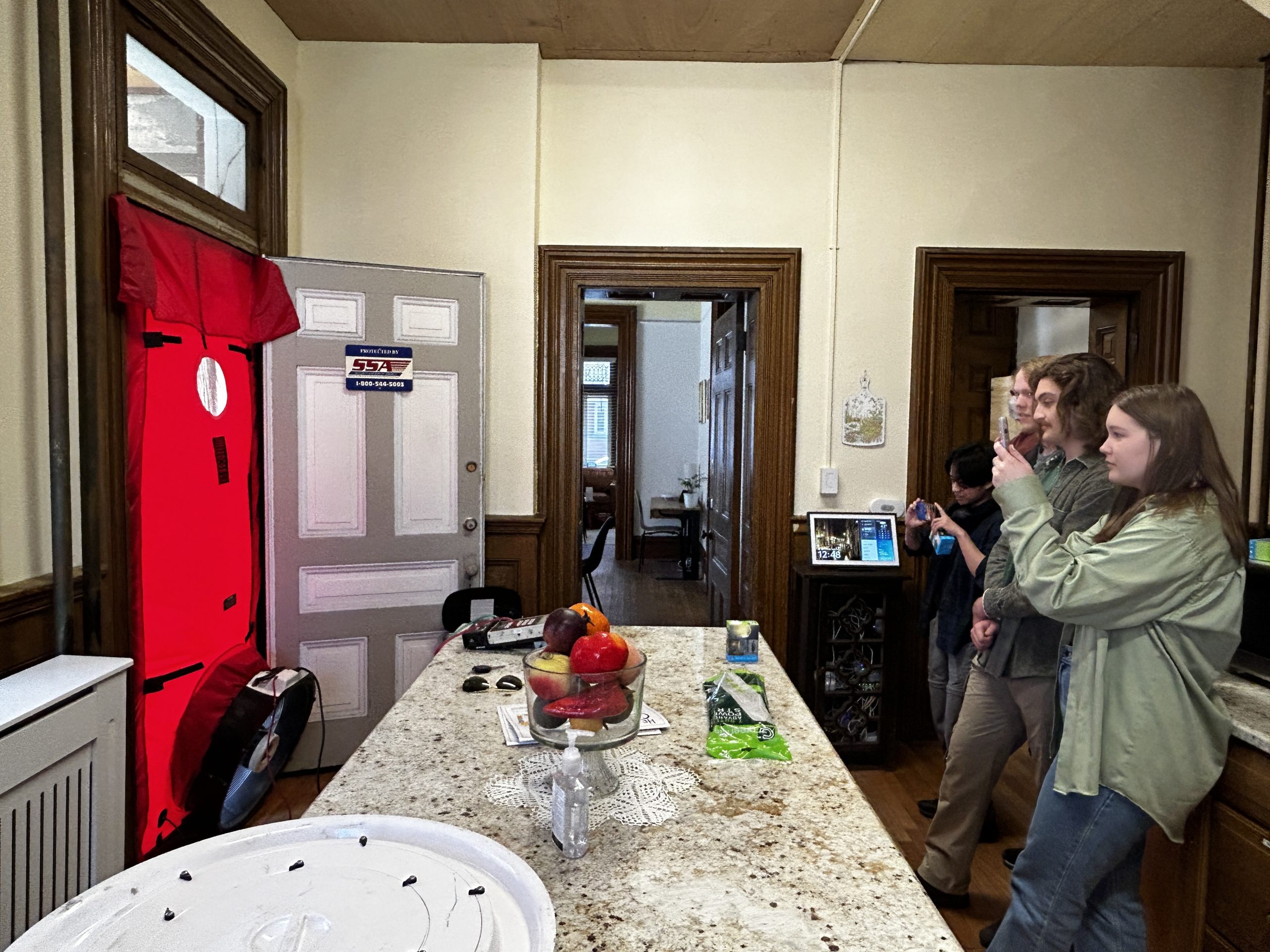
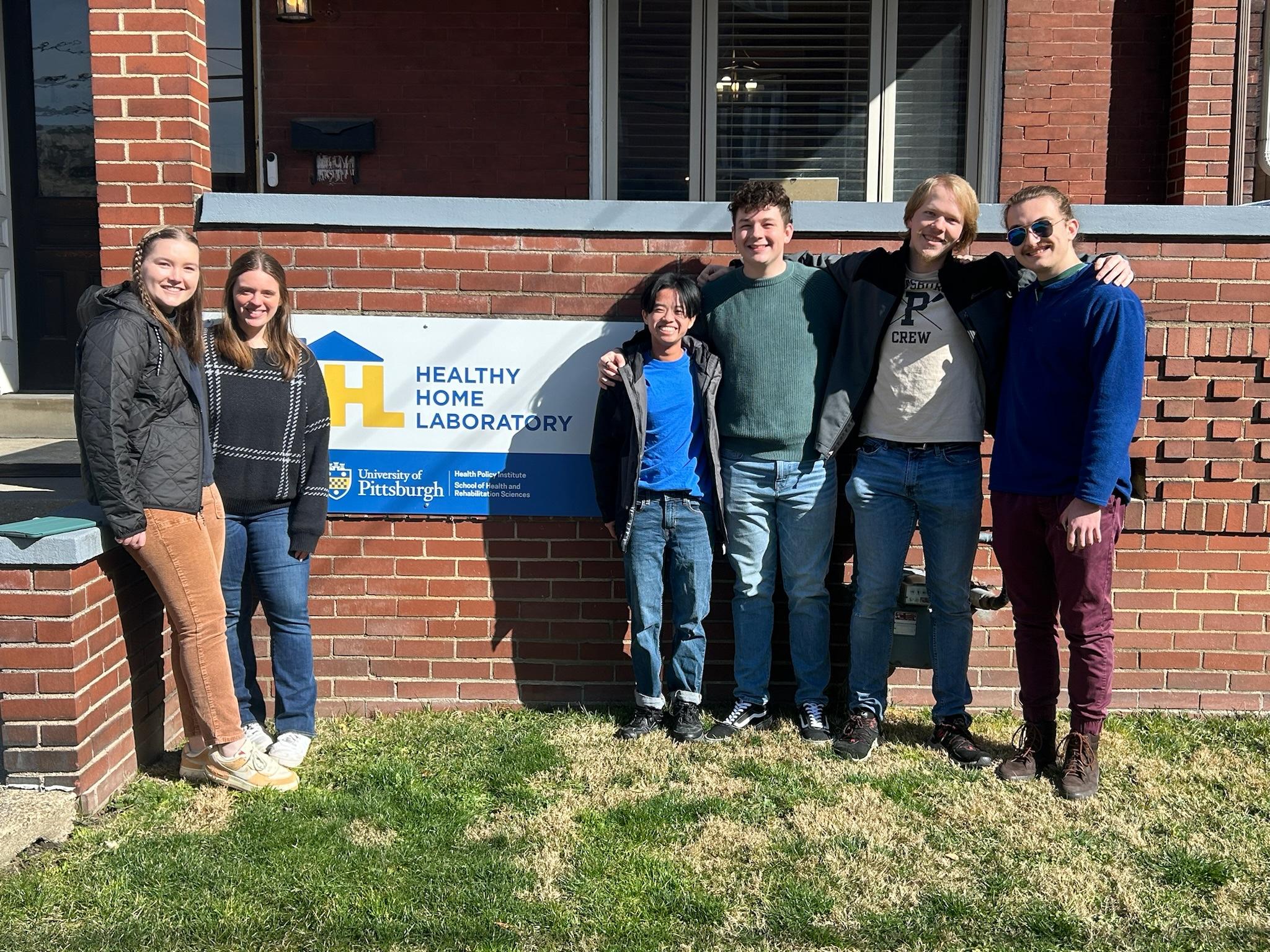
Engineering
Identifying the right problems is key to developing impactful technology and engineering solutions. Through our physical lab space that highlights key accessibility challenges that occur in older homes to a large multidisciplinary team full of clinical expertise, the HHL serves as a site for students/student groups from various disciplines of Pitt Engineering departments to identify problems related to aging in place and test their solutions with faculty feedback and guidance.
The HHL has supported a semester long project led by a multidisciplinary team of engineering students from The Art of Making course taught by Dr. Joseph Samosky to think like designers and identify, understand, and prototype solutions. In this course, the HHL team provided insight on stairclimbing challenges experienced by older adults as a problem to tackle and connections to community partners to support this student group’s knowledge of the problem.
The HHL has also supported a semester long capstone project led by a team of Pitt Civil & Environmental Engineering (CEE) students. This team used the HHL space to explore how to retrofit an older home to be all-electric, net-zero carbon, and energy-efficient. The HHL house itself was a perfect testing site to conduct heat leakage tests and thermal scans.
Check out this group’s final paper The Electrification of the Healthy Home Lab, which delves into identifying and sourcing the appropriate appliances and home modifications needed to improve energy efficiency in the HHL for a range of budgets.
Specialty Academic Events
The HHL regularly offers introductory tours of our lab space, research initiatives, and mission. The HHL provides valuable insights into the challenges of aging in place to various educational programs at Pitt, including the Provost Academy, University Educational Outreach Center, University of Pittsburgh Health Career Scholars Academy, and others!
